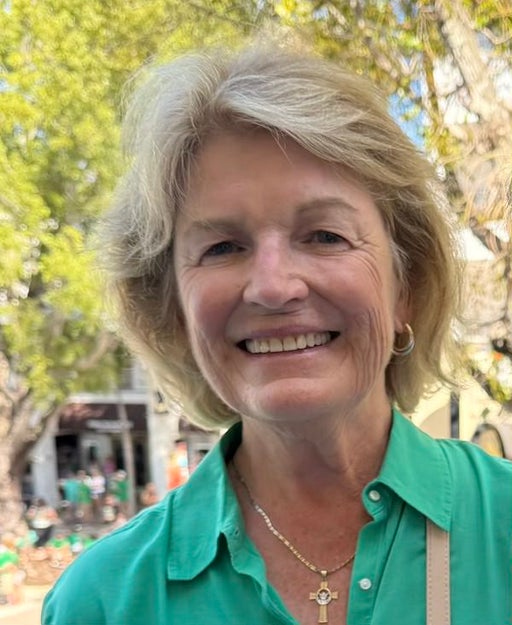Carol Horn’s Emmanuel College experience began with a leap of faith.
Raised in Natick, Mass., she chose the College for its liberal arts curriculum and Boston location—without ever visiting campus. A $750 scholarship for attending a Catholic college sealed the decision. That decision, Horn said, set the foundation for a lifelong commitment to educational equity.
“Emmanuel gave me the freedom to explore a wide range of subjects—from psychology to education—while in the heart of Boston,” Horn said. “But it was Sister Anne Cyril Delaney [SND], my Western Civilization professor, who taught me the true power of education. She inspired me to think critically and to always seek out deeper knowledge.”
Sr. Anne Cyril’s lectures were more than history lessons—they were explorations of democracy, justice, and intellectual rigor. For Horn, it was these lessons that sparked her passion for making education an equitable opportunity for all — and inspired her to visit the Acropolis in Greece decades later. “She taught us to see history as alive, urgent, and connected to our own lives,” Horn said. “That’s the power of great teaching—it stays with you forever.”
An Early Awakening to Inequity
Horn's commitment to education took root at Emmanuel, where she first read Death at an Early Age by Jonathan Kozol—a searing account of inequality in Boston’s public schools. “That book changed everything,” she said.
These formative moments—both in the classroom and in what she read—sparked a sense of purpose that has fueled Horn’s life and career. Her ongoing generous support of Emmanuel stems from deep gratitude. “Emmanuel was where my passion for education was ignited, and it set the foundation for everything I’ve done in my career, and I want to make sure future generations of students have the same opportunity to make an impact,” Horn said. “I want to give back to ensure that Emmanuel continues to nurture students who will go on to solve the complex challenges of our time.”
After graduating in 1971 with a degree in Psychology and a Minor in education, Horn began teaching second grade at the William Bradford School in Dorchester. Though initially unprepared for the challenges of an inner-city classroom, she found mentorship in principal—and fellow Emmanuel Alumna—Michaela Sheehan Spillane ’59, who helped her grow into the role.
Horn’s career followed her husband’s military assignments, taking her to classrooms in Georgia and Germany before settling in Northern Virginia. A chance opportunity to teach in a gifted and talented (GT) center reignited her passion—but also revealed troubling inequities. Few students of color or low-income students were represented in the program. Horn began investigating the systemic barriers keeping high-potential students out of advanced coursework.


